Can You Use GFCI Breakers and Outlets Interchangeably?
The NEC requires the use of GFCI devices in certain areas. These devices come in two forms: GFCI breakers and GFCI outlets. While they serve the same purpose, many people wonder if they can be used interchangeably.
GFCI outlets are installed in electrical outlets and protect against hazards that occur at the outlet, while GFCI breakers are installed in the main electrical panel and protect against hazards in the entire circuit.
GFCI devices are designed to prevent serious injury or death due to electric shock and their appropriate use needs to be ensured. This article will help with that.
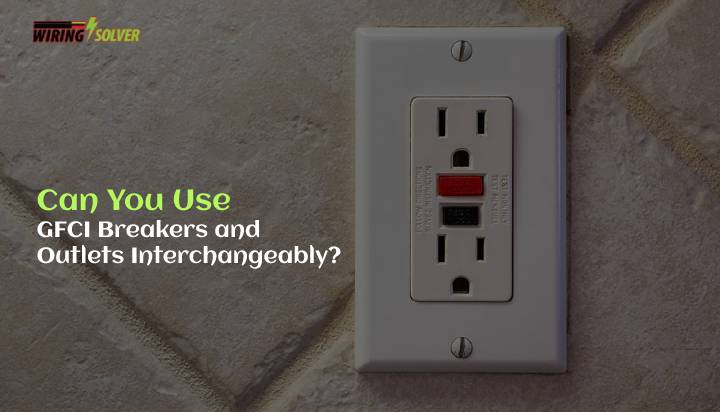
Can GFCI Outlets and Breakers Be Used Interchangeably?
While both types of devices serve similar functions, they are not interchangeable and should not be used in place of one another.
Ground fault circuit interrupter outlets and breakers are designed to protect against electrical hazards by interrupting the flow of electricity in the event of a ground fault or other electrical fault.
GFCI outlets are installed in electrical outlets and are designed to protect against electrical shocks and other hazards that can occur when an electrical device is in use.
GFCI outlets work by constantly monitoring the flow of electricity through the circuit and detecting any discrepancies that could indicate a ground fault or other electrical hazard.
If a hazard is detected, the GFCI outlet will immediately interrupt the flow of electricity to prevent accidents or injuries. They are different from regular outlets.
GFCI breakers, on the other hand, are installed in the main electrical panel and are designed to protect against electrical hazards in the entire circuit.
Like GFCI outlets, GFCI breakers work by constantly monitoring the flow of electricity and interrupting the circuit if a hazard is detected.
However, unlike GFCI outlets, which are designed to protect against hazards that occur at the outlet, GFCI breakers are designed to protect against hazards that occur anywhere in the circuit.
GFCI outlets are designed to protect against electrical hazards at the outlet, while GFCI breakers are designed to protect against hazards in the entire circuit.
It is important to use the appropriate type of device for your specific needs to ensure that you are properly protected against electrical hazards.
In summary, while GFCI outlets and breakers both serve similar functions, they are not interchangeable and should not be used in place of one another.
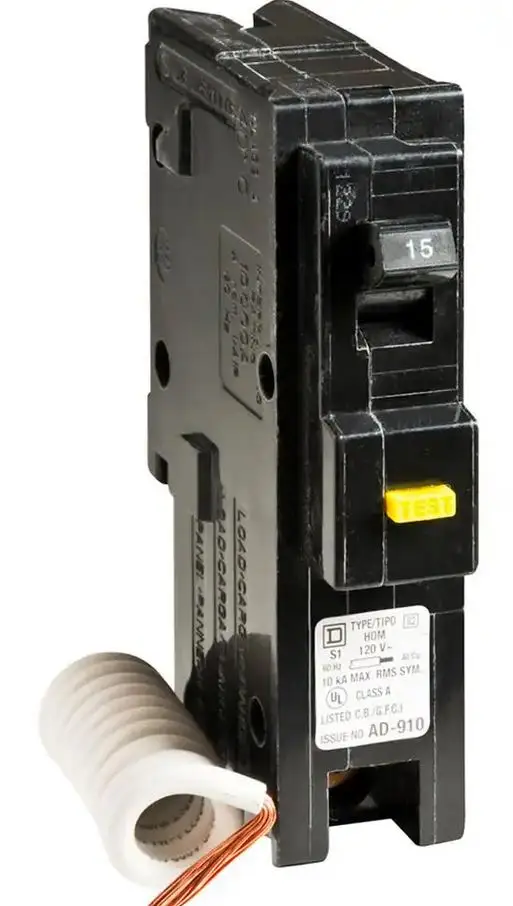
GFCI Breaker vs Outlet: Which One Should I Use?
While a GFCI breaker is interchangeable with a GFCI outlet, they both have their distinct use cases. I will talk about their preferred uses below.
Number of Outlets
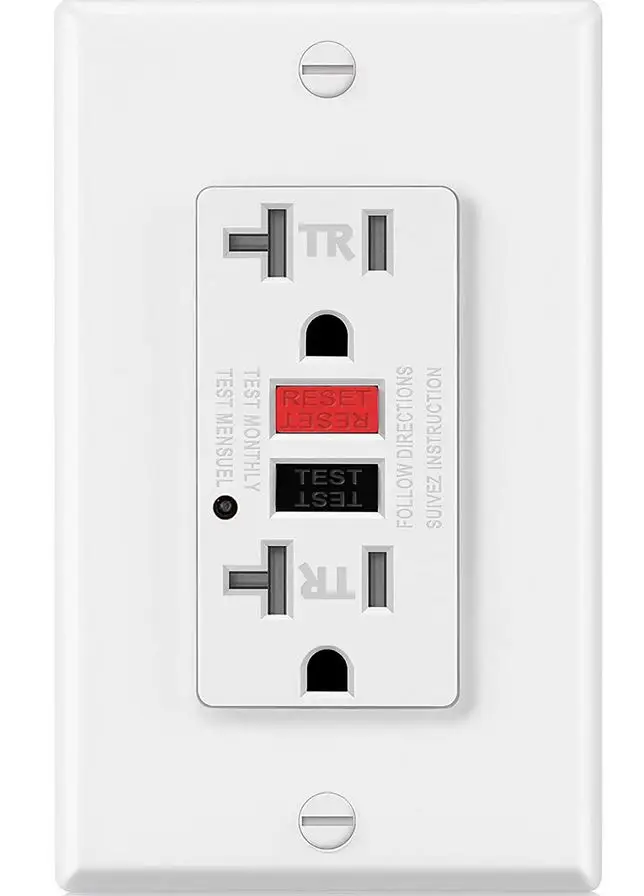
If you use a GFCI outlet, you are only ensuring protection for that one specific receptacle. The others on the same circuit will still remain vulnerable.
But, instead, if you use a GFCI breaker, you can ensure safety and protection for multiple outlets and receptacles with only one breaker.
This is one of the key considerations before choosing a breaker or an outlet. Sometimes you may need to wire a GFCI outlet with 4 wires as well.
Reset Location
If an outlet trips due to a short or some other reason, you have to press the RESET button or flip the switch.
If you are using a GFCI outlet, the task is quite simple, as you don’t have to go through a lot of hassle.
However, if you are using a GFCI breaker, you have to painstakingly go to your main panel, open it up, and flick the switch.
This might be a daunting task if your main panel is somewhere inconvenient.
Cost
While a GFCI outlet can cost around $15, a GFCI breaker can cost somewhere around $35 to $40.
If you only want to protect one specific location, you can go for a GFCI outlet.
But if you wish to protect multiple locations, you are better off buying a GFCI breaker.
Additional Safety
GFCI breakers protect against ground faults as well as many kinds of overloading, faulty wiring, and short circuits that an outlet will not be able to provide to the entire circuit or system.
So, is it better to have a GFCI outlet or a breaker? It depends on your preference based on the above factors.
What Are the Dangers of Using GFCI Outlets and Breakers Interchangeably?
Using GFCI outlets and breakers interchangeably can be dangerous and can lead to inadequate protection against electrical hazards. As they have a different use case, it is necessary to use them appropriately.
If you use a GFCI outlet in place of a GFCI breaker, you may not be adequately protected against electrical hazards in the entire circuit.
Similarly, if you use a GFCI breaker in place of a GFCI outlet, you may not be adequately protected against electrical shocks and other hazards that can occur when electrical malfunctions occur.
For example, if you use a GFCI outlet to protect an entire circuit, it may not be able to handle the load and may not provide adequate safety to you or your electrical appliances.
GFCI outlets are installed as electrical outlets and work by constantly monitoring the flow of electricity through the circuit and detecting any discrepancies that could indicate a ground fault or other electrical hazard.
GFCI breakers, on the other hand, are installed in the main electrical panel and work by constantly monitoring the flow of electricity and interrupting the circuit if a hazard is detected.
Unlike GFCI outlets, GFCI breakers are designed to protect against hazards that occur anywhere in the circuit. Therefore, they should not be used interchangeably.
Summary
Ground fault Circuit Interrupters or GFCI outlets and breakers are designed to protect against electrical hazards, but they are not interchangeable and should not be used in place of one another.
It is important to use the appropriate type of GFCI device for your specific needs to ensure that you are properly protected against electrical hazards.




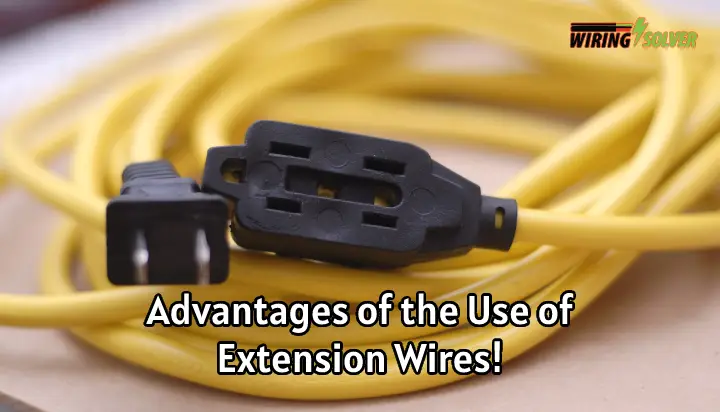
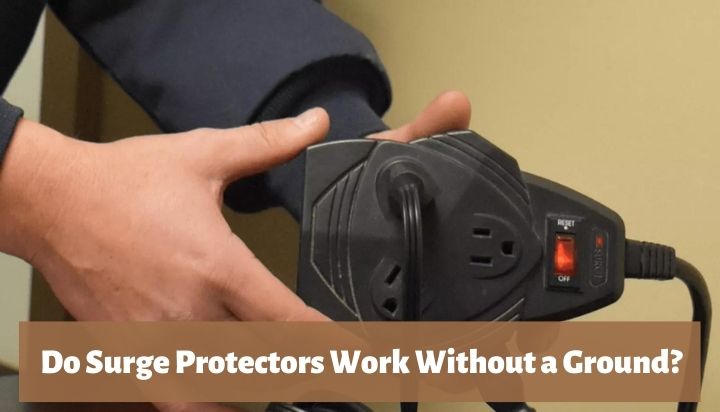
![Can You Plug A Fridge Into A GFCI Outlet? [Answered]](https://wiringsolver.com/wp-content/uploads/2022/05/Can-You-Plug-A-Fridge-Into-A-GFCI-Outlet.jpeg)